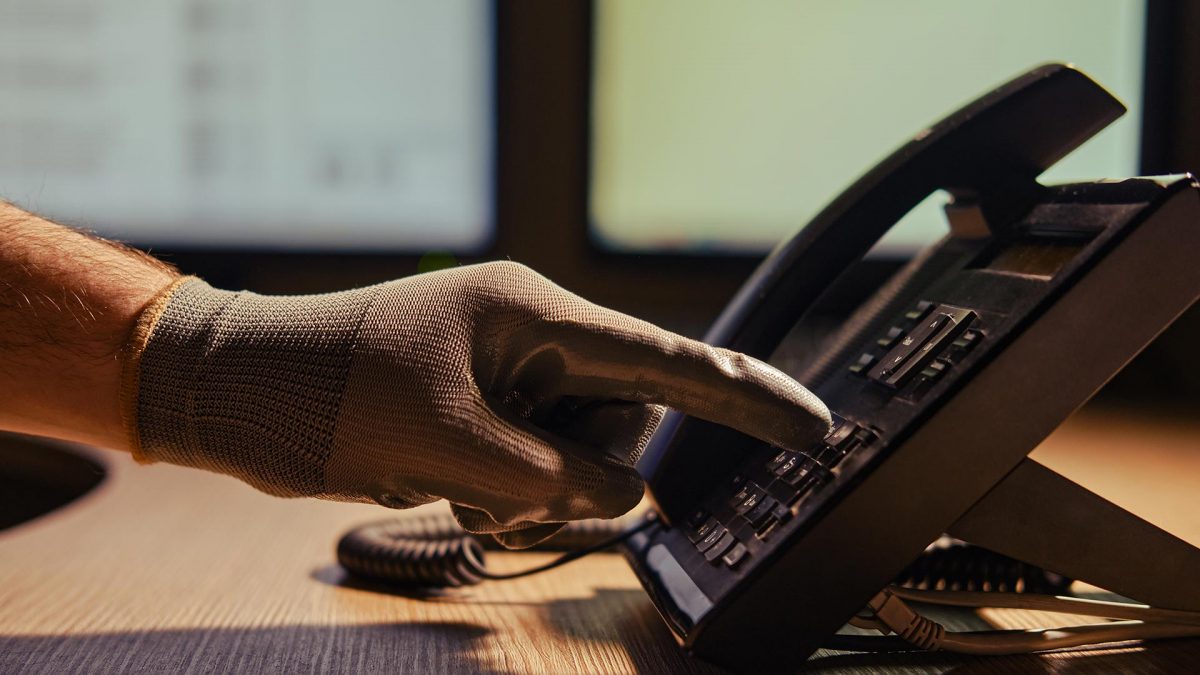Charities and telecoms fraud

Jo Coles and Andy Mayo
Most charities couldn’t operate without telephone lines. They may be vital for receiving donations, providing helplines, and for the effective running of the organisation. Sadly, telephone lines are also a target for fraudsters. By ensuring your organisation is aware of the risks, by educating your employees and volunteers, and by putting protective measures in place you can feel more confident – and safe – when using your phones.
Why are charities at risk of telecoms fraud?
Criminals can abuse others’ telephone lines and infrastructure to make money. Regardless of the purpose or mission of your charity, having a telephone system makes you attractive to fraudsters. Criminals don’t discriminate based on what your organisation does: but they will target the less secure. Smaller charities in particular may have fewer resources available to focus on security.
Why is it important for charities to take telecoms fraud seriously?
Charities rightly want to ensure that donations are used responsibly. Diverting resources away from this might seem counterintuitive so telecoms security may not be placed high on a list of priorities. However, it is important to consider the benefits such an investment can provide which include the following.
- Avoiding liabilities arising from fraudulent use. It’s likely that the terms and conditions of your telecoms services will assign liability for any unauthorised use of services to your charity – this leaves little recourse should services get abused.
- Preventing money lost through fraud preserves your charity’s ability to continue its good work and help to beneficiaries, and achieve charitable aims.
- Protecting the charity’s reputation and preventing a loss of confidence.
- Protecting donors’ money and
Only a couple of telecoms fraud that could impact charitable organisations are explored here. The aim of this article is to raise awareness and to provide tips that don’t cost the earth but can quickly increase your awareness and decrease the chances of your charity falling victim to fraud.
PBX fraud
What is it?
PBX (Private Branch Exchange) is the private telephone network used within an organisation, which connects to external networks. It’s an attractive target for fraudsters; if a fraudster can remotely gain access to your PBX network they can use it to make outgoing calls from a remote location (usually to international and premium rate numbers). The fraudsters will be making money from the calls that go to these numbers, leaving them with a tidy profit and the organisation with a huge bill.
How to spot it
- Monitor your bills and usage closely – look for unexpected, long calls to international and premium rate numbers
- Calls from unused extensions
- Multiple failed login attempts
- Users locked out of voicemail services
- Difficulty obtaining an outbound line
- Calls made outside business hours
- Sudden and unexpected increases in phone bills
How to protect against it
- Password-protect all voicemails (not with factory set passwords)
- Change passwords and access codes regularly
- Bar international and/or premium calls if there is no business requirement for them
- Deactivate phone lines when not in use (e.g. weekends)
- Disable call forwarding features
- Educate employees about social engineering tactics that fraudsters may use (e.g.in their efforts to obtain access codes)
Wangiri fraud
What is it?
Phone calls are made en-masse, but the calls are terminated so quickly that the receiving phones may not even ring. The intention is to leave a missed call notification because the fraud relies on our personal curiosity in calling the number back without really thinking about it. The call will often be to a premium rate number that the fraudster will profit from. Most people won’t realise they’ve been a victim of fraud until they receive their bill, which may never reach the end user in some organisations.
How to spot it
- Sudden increases in your mobile phone bills
- Staff reporting unusual activity and volumes of missed calls
How to protect against it
- Provide advice to staff who use phones issued by the organisation to raise awareness of the risk and to encourage them to think before they call an unknown number
- Block international or premium rate calls with your service provider
- Monitor phone usage bills closely and react with specific guidance for staff who have fallen victim to the fraud.